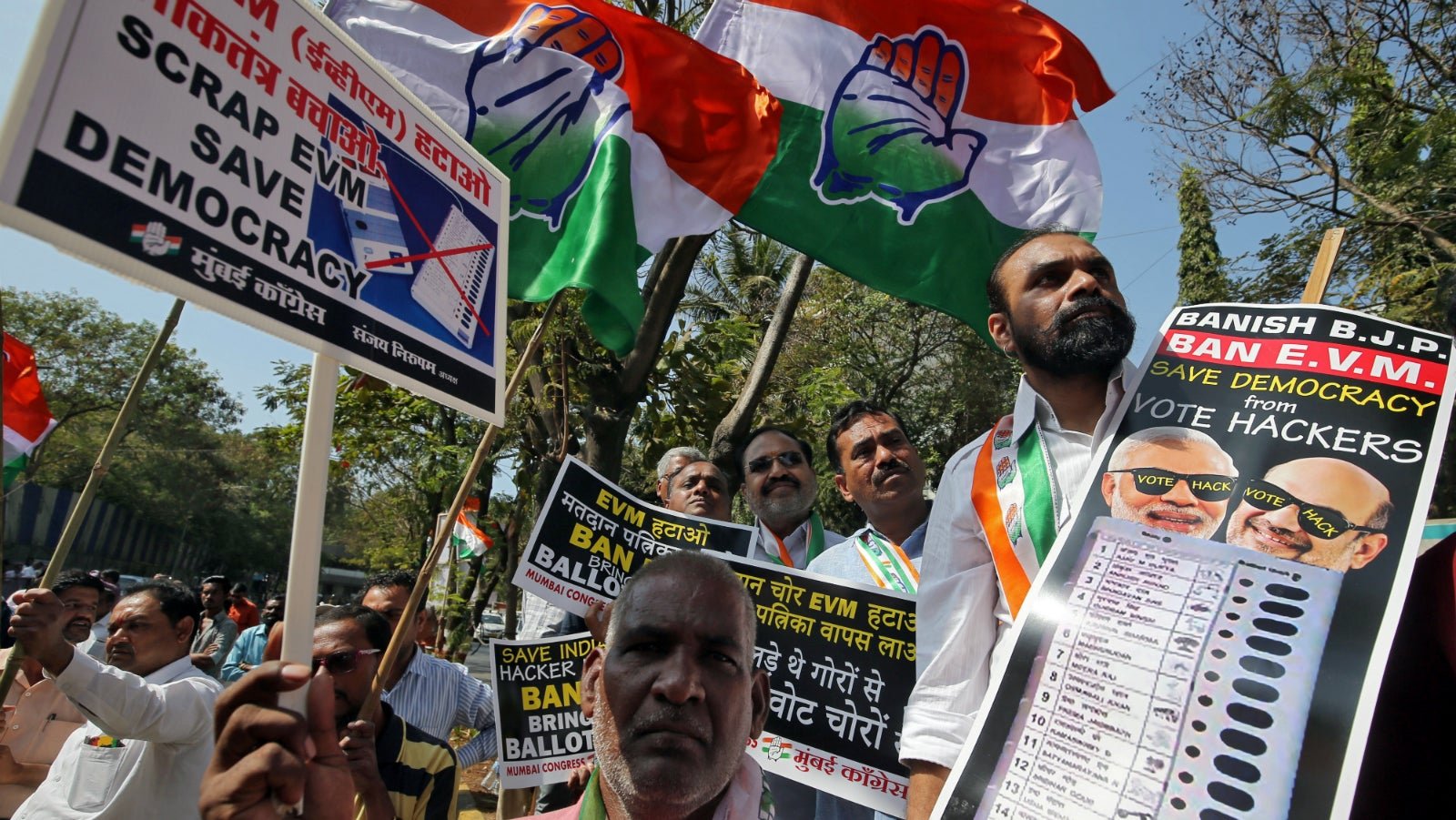Many urban Indians don’t want to even talk with someone who opposes their political views
If you’ve ever wanted to tear your hair out during a political argument with a fellow Indian, you’re far from alone.


If you’ve ever wanted to tear your hair out during a political argument with a fellow Indian, you’re far from alone.
A recent survey has shown that urban Indians are among the most politically divided people in the world.
Around 24% of people across the globe believe that those who hold opposing political views from their own are not worth having a conversation with, according to a survey that the international market research company Ipsos conducted for the BBC. But in India, 35% of respondents agree with this statement—the highest rate out of all the countries surveyed.
Ipsos conducted online panels of almost 20,000 adults in 27 countries, from Nov. 26 through Dec. 07, for this survey. The Indians who were surveyed are more urban, educated, and affluent than most, the Paris-based organisation specified, which means the results are not nationally representative.
The survey provides more proof of urban Indians’ higher likelihood of thinking ill of those with political views different from theirs. For example, 44% of the Indians surveyed think that people who hold opposing political views “don’t care about people like them”—far more than the global average of 31% who believe this.
And while 43% of Indians said that their political opposers don’t care about the future of the country, just 28% of respondents hold this view globally. Indians are the second most likely to hold this belief, after people in Turkey, which saw 46% of respondents agree with this statement.
But despite their frustration with political opposers, Indians are engaging more with people of divergent views than those elsewhere. In India, 56% of respondents said they converse with people who hold opposing political views at least once a week, while just 35% of people globally do this.
Indians are also more likely to be optimistic about the political might of platforms like Facebook and Twitter than others. While 63% of Indian respondents said that social media “is breaking down barriers between the public and people in power,” only 44% of global respondents agreed with this statement.
“Social platforms like Facebook and Twitter are a big hit among Indians as conduits enabling the common man to connect with public figures, something which has been a dream come true for them,” Parijat Chakraborty, head of Ipsos India’s public affairs, said in a press release on the survey. “Also, (the) majority of Indians exhort the merits of social platforms as interactive mediums. (The) downside being, social platforms are denounced for being divisive, though.”
With India headed for a national election in a couple of months, and as the country is tense in the aftermath of a militant attack and a border conflict with Pakistan, the stakes of political polarisation are perhaps higher than they have been in recent memory.
Read Quartz’s coverage of the 2019 Indian general election here.